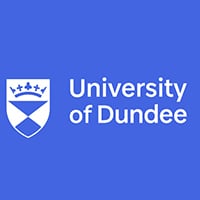Truth and Being Laid Bare - The Use of Nudity in Philosophy
Position Details (PhD Program)
Context of Truth and Being Laid Bare - The Use of Nudity in Philosophy project at University of Dundee
The meaning of the adjectives ‘naked’ or ‘nude’ depend largely on the noun they qualify, such as ‘naked truth’, ‘naked thing’ or ‘naked life’. There is ample use of these terms in the history of philosophy, though, as of yet, no systematic study of the actual impact or contribution of the term ‘naked’ to epistemology, ontology or philosophy as a whole.
For example, Avicenna uses the Arabic word ‘tajrīd’, literally, ‘disrobement’ or ‘stripping’, to speak of an ‘abstraction’ or what is ‘abstracted’ (mujarrad); and following this, William of Auvergne speaks of abstraction as denudatio; Meister Eckhart speaks of God as esse nudum; Scipion Dupleix speaks of la nue entité as a way of expressing the Latin existentia in French; Descartes, famously speaking of a piece of wax, says Je la considère toute nue; and more lately, Agamben has spoken of la nuda vita; and Jean Luc Nancy of la nudité du sens.
- It is not expected that the applicant cover all of the above, but that they find an angle in relation to the above that they wish to pursue and focus on. Questions that could possibly be pursued, include: how does the naked truth differ from other theories of truth? What happens when the locus of truth is displaced from the proposition (x proposition is true) to the body (the naked truth)? What is the impact of different entities being held to be naked, be they mankind, God, a piece of wax, life or meaning? How does art – for example, artworks that depict veritas filia temporis – have the ability to make us rethink the concept of truth and what it entails



 University of Dundee
University of Dundee